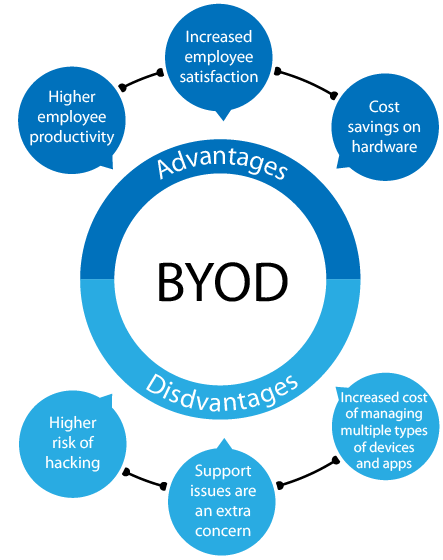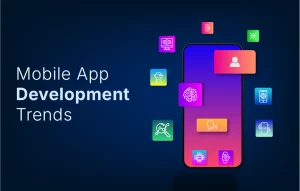299 per second, which means 25.8 million per day, is the number of mobile connections being established. The irony is every day, 21.2 million are getting added on our planet. That shows the importance of mobile phones in our day-to-day lives.
Enterprises are no exception from that. With mobility and apps, enterprises can gain an extra 240 hours of work from each employee every year. That’s an additional six weeks a company gets per employee per year. This is just one side of the coin. Enterprise mobility offers much more than only increased productivity like better service quality, reduced operational costs, field worker empowerment, improved customer satisfaction, efficient data collection, faster reporting and so on.
Looking at the demand and the ubiquity of mobile phones, we have developed this blog, which focuses on frequently asked questions for enterprise mobile strategy.
Q-1 What are my business goals and objectives for developing an enterprise mobile strategy?
We are sure that you know your company’s business priorities. Nevertheless, if you want to verify that, we have listed some questions.
- What are the corporate objectives of my company?
- What corporate goals, timelines and resources does my company have?
- How can enterprise mobile strategy initiatives help my company to achieve its corporate objectives?
- If my company adopts an enterprise mobile strategy, will that increase or decrease the company’s flexibility? If favorable, to what extent?
- What does my company look to implement in mobile interactive marketing for consumers?
- With an enterprise mobile strategy, what sort of customer and employee experience does my company wish to create? Are these unique? If so, how and why?
- Once an enterprise mobile strategy is in place, will my managers and C-suite executives be able to adjust to the changes?
Upon answering the critical questions mentioned above, you’ll be able to define whether your business goals and objectives can be fulfilled by developing an enterprise mobile strategy or not.
Q-2 What is an enterprise mobile strategy in simple terms?
It is just a framework, which encompasses your business, technologies you are using, people and processes you have into one unified sphere. It integrates mobility as a technology with the rest of the ecosystem to allow organizations to define and practice their mobile engagement.
Q-3 When accessing apps and data, what devices will my employees use?
Usually, employees have their mobile phones and tablets and many of them use it for company operations as well. Such a situation causes a dilemma for companies, as the usage of personal devices to access company data and applications can lead to security risks.
Therefore, you must discuss with your enterprise mobile app developers regarding the policies that can address which devices employees can use to access company data and applications. We do understand that bring your own device (BYOD) is a trend and that it is important. But for the advantages, the disadvantages cannot be ignored.

Instead, your company can select one or both platform like iOS or Android and provide devices and apps to all employees.
This way, you can give your IT department more control over your devices, data and apps. However, the disadvantage will be higher hardware costs and maybe workers’ dissatisfaction as they will be forced to use a device and operating system interface, which they don’t like or prefer.
Q-4 What is the role of data in enterprise mobile app?
Data, as everybody knows, is the new oil for most businesses. Therefore, data is a significant consideration while crafting an enterprise mobile strategy.
For example, let’s consider a typical use case of sales representatives and managers who frequently need to view and add sales opportunities and lead information. One can consider the following questions while developing employee-focused data access:
- How much lead and contact information do you need to feed into and display on your mobile app?
- What sort of data can users add from their devices?
- Will you need to control levels of user access to ensure the integrity of the added data?
- Where are these sales data stored, and what is the best way to access the data in your employees’ app?
- Is there a need to process added data locally before being pushed back to the database?
Without a doubt, data is at the heart of any enterprise mobile strategy. Considering the point of data security and compliance, an in-depth understanding of how it will be used and how it will be accessed has a phenomenal value
The following is the most common frequently asked question that we have come across so far.
Q-5 Why do I need somebody to execute my enterprise mobile strategy when I can build it myself?
Check these three things – skill sets, schedules and budget. A full understanding of these resources can help you to decide whether you need somebody else’s help or not.
You will probably find that the process, from ideation to execution, would require a mix of internal and external resources as it is unlikely that your company can have all the expertise and workers you need to take care of each step of the process.
For example, you may have skilled back-end engineers but might still need an extended team of front-end programmers and platform-specific developers (mobile web, iOS, and Android) to come together to build your mobile apps. Or you might have a complete technical team, but you lack the marketers and business development staff to plan go-to-market strategy your applications.
Other necessities of building an enterprise mobile app in-house includes hiring new technical staff, buying and implementing other software applications, such as mobile device management tools and managing your devices and apps once they’re developed and launched.
Whether you are building or buying, it is an important decision, which require many considerations.
A bonus question:
Q-6 How will I manage my enterprise mobile strategy, and who will be taking the authority?
Because many different departments – engineering, marketing, IT, sales, operations and others – are going to have a stake in mobile strategy, you need to identify clearly who owns what part of the process and who is ultimately responsible for the whole plan.
Policies need to be established and implemented for BYOD, mobile device management, protection, access and app usage. You must create and maintain new processes.
That’s why it will be essential to plan the mobile strategy – before, during and after launch. This will clearly define the roles and responsibilities of each team and employee.









